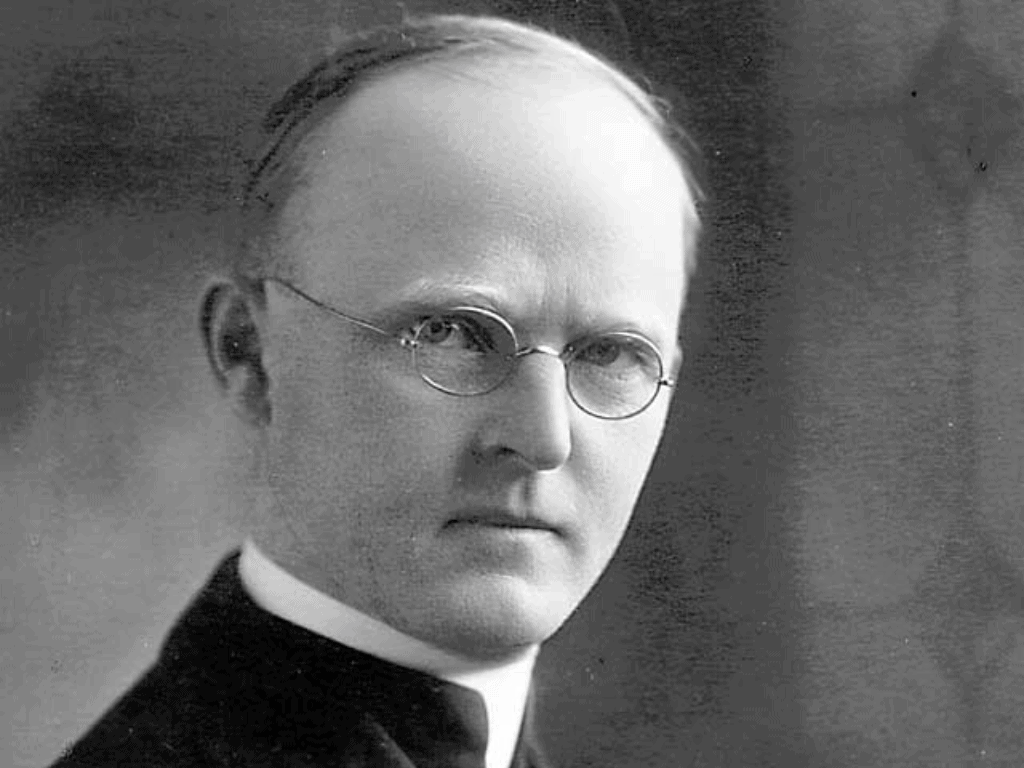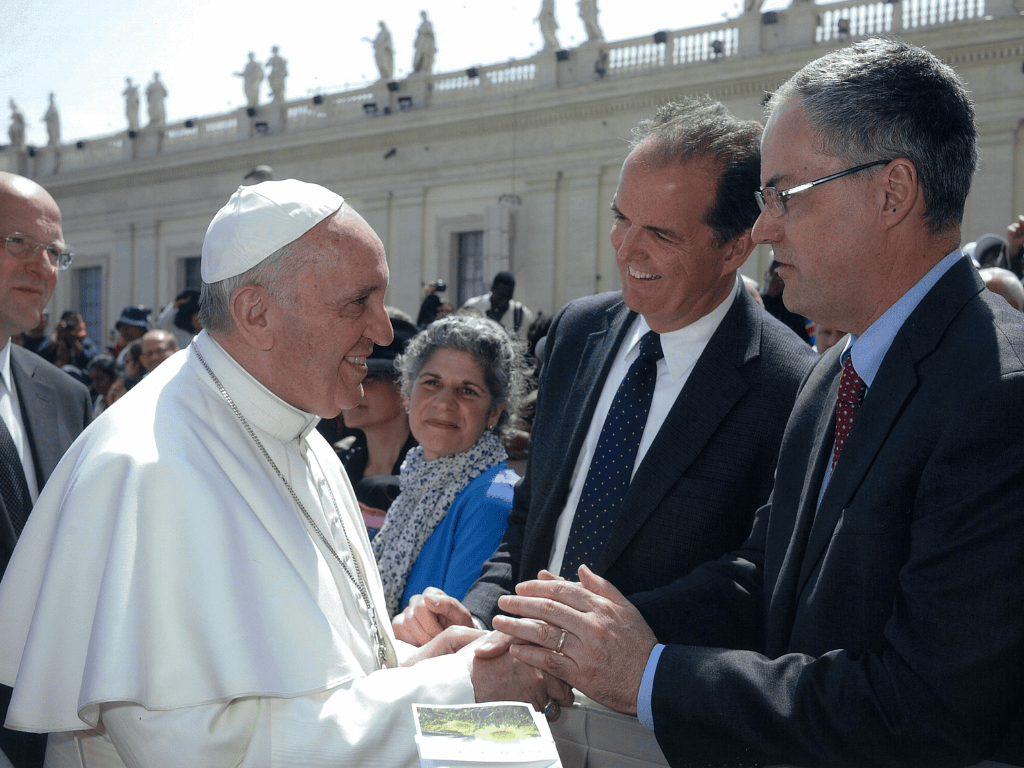During one of his countless visits to agrarian Catholic communities around the United States, Jim Ennis met a priest in the backwoods of Louisiana who had turned a supersized out building into an after-school gathering spot for local youngsters. High school students from the parish would mentor those in junior high and elementary school, and pretty soon an entire generation of the city’s youth – not just Catholics – were learning how to lead, do better in school and stay out of the vices so easily accessible to modern rural children such as premarital sex, drugs and alcohol.
“That pastor,” said Ennis, the executive director of Catholic Rural life, “had a vision.”
Then Ennis drove 25 miles down the road. Another town, another parish, another rural community.
The priest, at first, refused to meet with him. He was embarrassed at the things happening in his community – many of the vices mentioned previously, as well as a decline in Mass attendance and participation in parish life.
“Rural ministry is tough,” Ennis said. “You’re usually the only priest in the county.”
Catholic Rural Life – and, in many ways, The Saint Paul Seminary – exists to make it easier. The organization with offices in the seminary’s Archbishop Ireland Memorial Library is celebrating its 100th anniversary this spring, a century of equipping Catholics in rural America to know, love and serve Christ while leading their neighbors to do the same.
“It’s about evangelization, it’s about discipleship, it’s about bringing Christ to the next generation,” Ennis said. Many think “’faith is irrelevant to my everyday life,’ and that couldn’t be further from the truth. When we separate God and Christ from our vocation and our work in rural communities, life becomes meaningless.”
***
It started on Nov. 11, 1923 with a gathering of bishops, priests and laity in St. Louis. The occasion was spearheaded by Fr. (and later Archbishop) Edwin V. O’Hara, who would go on to lead what became the National Catholic Rural Life Conference and later Catholic Rural Life.
O’Hara grew up on a farm near Lanesboro, Minnesota and attended The Saint Paul Seminary. He was ordained in 1905 by Archbishop John Ireland, who had founded the seminary 11 years earlier.

Even in the early 1920s, O’Hara saw an underserved rural Church. Through initiatives such as rural internships, coursework on rural issues, and immersion experiences in rural settings, he gave seminarians at The Saint Paul Seminary the opportunity to cultivate a holistic understanding of their future ministry. This included recruitment of seminarians to serve in O’Hara’s Summer Vacation School Movement. Over a 10-year span, O’Hara sought seminarians to serve as summer catechists, teaching the faith in rural communities across the Midwest.
Today, small-town Catholicism faces a shortage of priests, the clustering of many parishes due to shrinking resources and the demographic shifts Catholicism has experienced as some young people leave the faith.
Rural priests, in particular, can often become lonely or isolated – which leads to situations like the one Ennis encountered in Louisiana town No. 2.
“Just as much now as there was in 1923, there’s a need for catechesis, a need for evangelization,” Ennis said. “It’s really a re-presentation of the Gospel in ways this next generation can understand it and make it accessible.
“It’s also about leadership development – helping pastors and laymen and women see Christ and see nature in new ways.”
That means reminding farmers like Emily Pieper how their physical work with God’s creation – which comes about by his “Word,” who in Catholic trinitarian theology is the Son – has them interacting with Christ and bringing Him to the world each second of their earthly lives.
“Part of what makes you love what you do is who you work with,” said Pieper, a second-generation co-owner of a dairy farm in New Prague, Minnesota. “Working with family and working with cows has always been my life. That’s just what I’ve grown to love and what I’ve grown to do. I tried a couple other things; I went to college, I worked for another company. I couldn’t wait to get home and farm.
“Farming and my family have taught me so much about God and His beautiful gifts that he blesses us with every day, which we get to share with one another.”
Ennis hopes the next 100 years will see more farmers with an outlook like that of Pieper.
***
A traditional, urban British pub on the border of Minneapolis and St. Paul whose servers usually ask if you’d like a shot of whiskey to go with your beer might seem like one of the last places a rural ministry organization would germinate.
But this is where Ennis and Dr. Christopher Thompson, academic dean at The Saint Paul Seminary, have spent many a Friday-afternoon happy hour brainstorming ideas for how to spread the Gospel in rural communities.
“I’ve tried to make contributions structurally that allow Catholic Rural Life to flex,” Thompson said.

The two friends first met at a dinner party in 2006. Since then, they’ve traveled all over the world sharing their ideas on the connections between faith and farming – including multiple papal audiences during ag-focused conferences in Rome.
Much of their work coincided with Pope Francis’ encyclical “Laudato si’,” which deals with responsible stewardship of God’s creation.
“It’s been a great collaboration,” Thompson said.
“Farming and my family have taught me so much about God and His beautiful gifts that he blesses us with every day, which we get to share with one another.” — Emily Pieper, farmer
Thompson served on Catholic Rural Life’s board of directors when Ennis took over as executive director in 2008. Together, they helped form the seminary’s rural ministry practicum, which brings seminarians to area farms to learn first-hand the challenges and opportunities of rural ministry. The seminary’s Institute for Ongoing Clergy Formation and Catholic Rural Life host an annual event for priests serving in multiple parishes.
One in four seminarians who go on to become priests will serve in a rural parish setting at some point.
It’s that preparation for the future Ennis hopes to focus on as Catholic Rural Life celebrates its centennial. The festivities culminate with a May 8 “Rejoicing in the Harvest” event featuring Thompson, keynote presentations from Cardinal Timothy Dolan and Msgr. James Shea, and others.
“Our mission hasn’t changed,” Ennis said. “The Holy Spirit is doing His work.”

